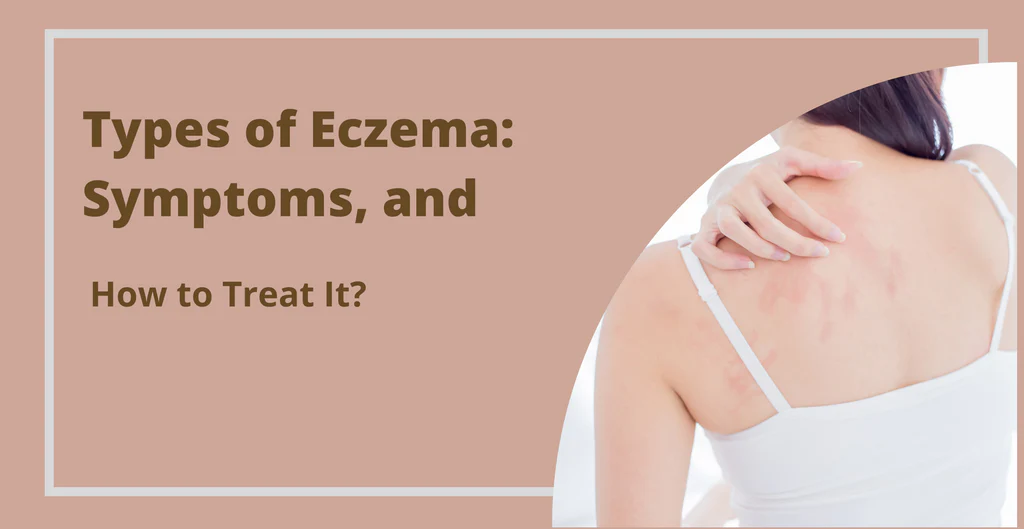Eczema Treatment
Get the Best Eczema Treatment in Bhopal with Dr. Shikha Shivhare's Expertise

Eczema causes rashes, itching, and scaly skin. The most common type, atopic eczema, is often linked to asthma or hay fever. People with weak immune systems may get eczema more easily. Children breastfed for 4 to 6 months might have a lower chance of getting eczema. For effective eczema treatment in Bhopal, expert care is available. Proper eczema treatment in Bhopal can help reduce symptoms and improve skin health.
Causes of Eczema
Genetics
Eczema often runs in families, suggesting a genetic predisposition to the situation. Individuals with a family history of eczema, asthma, or allergic rhinitis (hay fever) may be at higher risk.
Immune system dysfunction
Eczema is believed to involve an abnormal immune response, where the immune system reacts excessively to certain triggers, leading to inflammation and skin irritation.
Environmental factors
Exposure to irritants or allergens in the environment can trigger or exacerbate eczema symptoms. Common environmental triggers include pollen, pet dander, dust mites, mold, certain foods, harsh chemicals, and weather changes.
Skin barrier dysfunction
Eczema is associated with defects in the skin barrier, which can allow irritants, allergens, and bacteria to penetrate the skin more easily, leading to inflammation and itching.
Dry skin
Dry skin is a common feature of eczema and can contribute to the development of flare-ups. Factors that can worsen dry skin include cold weather, low humidity, harsh soaps, and frequent bathing or showering.
Risk factors
Family history
A genetic predisposition to eczema may increase the likelihood of developing the condition.
Hypersensitivity reactions
Allergic reactions to various environmental triggers such as dust, smoke, fumes, pollen, mold, and animal dander can lead to eczema flare-ups.
Recurrent colds
Frequent colds or respiratory infections may worsen eczema symptoms.
Exposure to water and cold environments
Prolonged exposure to water and cold temperatures can dry out the skin and trigger eczema flare-ups.
Exposure to environmental pollutants
Air pollution and other environmental pollutants may irritate the skin and contribute to eczema symptoms.
Dietary factors
Certain foods such as milk, eggs, fish, wheat, peanuts, pulses, and soy may trigger eczema flare-ups in susceptible individuals.
Symptoms of Eczema
Individuals with eczema typically present with the following rash patterns, depending on their age:
In younger children, skin lesions or rashes often appear on the scalp, hands, face, and feet, and may ooze fluid.
In adolescents or adults, common areas for rashes include the back of the knees, elbows, hands, feet, and neck.
Overall, notable symptoms of eczema include:
- Rashes on the skin
- Itching sensation (pruritus)
- Localized redness with elevated skin patches
- Blister formation with fluid buildup
- Rough skin resulting from scratching
- Ear discharges
- Changes in skin pigmentation
Diagnosis of Eczema
The physician will conduct a thorough examination of the patient’s medical history, including any family history of similar issues. A physical examination to assess the location of lesions and the severity of the condition is crucial in confirming the diagnosis.
The following tests may be ordered before reaching a final diagnosis:
- Allergy Skin Testing: This test is performed to identify specific allergens that may be contributing to the skin condition.
- Skin biopsy: In some cases, a skin biopsy may be performed to gather additional information about the underlying cause of the condition, although this is rarely necessary.
Treatment Options
General Precautions
Eczema is a skin disorder characterized by rashes, itching, and a scaly appearance of the skin. The most common form is atopic eczema, which often affects individuals with asthma or hay fever due to their heightened sensitivity to various agents.
Evidence suggests that eczema is more prevalent in individuals with compromised immune systems. Interestingly, children who are breastfed for 4 to 6 months tend to have a lower risk of developing eczema.
Causes
- Hypersensitivity reaction: an allergic response in the skin, typically observed in infants and young children but often diminishing with age.
- Presence of asthma or hay fever, which increases susceptibility.
Medical Management
Treatment with Steroids
Cortisone creams or lotions are used for mild cases, while oral or intravenous doses may be necessary for severe cases.
Mild Antihistamines
Prescribed as per the physician's advice, with stronger doses occasionally required for rare cases.
Topical Immunomodulators
These drugs address immune system issues, excluding children under 2 years of age. Example: Pimecrolimus.
Coal Tar or Anthralin
Topical lotions or creams containing these substances.
Antibiotics
Prescribed in cases where skin scratching leads to bacterial invasion.
Prognosis
Eczema can be effectively managed through proper precautions and timely treatment of symptoms. However, adults with eczema often experience a high rate of recurrence due to multiple risk factors and causative factors. The presence of two or more risk factors simultaneously indicates a poorer prognosis and increased recurrence rates.
Conversely, children with eczema typically respond well to treatment, with a favorable prognosis and lower chances of recurrence.
Complications of Disease
Scratching can lead to bacterial invasion and subsequent infection, potentially resulting in permanent scarring and limitations in social participation or activity.
Frequently Asked Questions
Common treatments include cortisone creams or lotions for mild cases, oral or intravenous steroids for severe cases, antihistamines, topical immunomodulators, coal tar or anthralin-based products, antibiotics for bacterial infections, oral immunosuppressants, immunotherapy, and phototherapy with UV rays A or B.
You can manage symptoms by avoiding triggers, using mild soaps and moisturizers, keeping fingernails short to prevent scratching, applying cold compresses to reduce itching, and wearing soft, breathable fabrics.
Yes, lifestyle changes such as maintaining a healthy diet, managing stress levels, avoiding harsh chemicals or irritants, and keeping skin well moisturized can help manage eczema symptoms.
While there is no cure for eczema, symptoms can be effectively managed with proper treatment and lifestyle adjustments
If your symptoms worsen, it’s important to consult your healthcare provider. They may adjust your treatment plan or recommend additional interventions.
